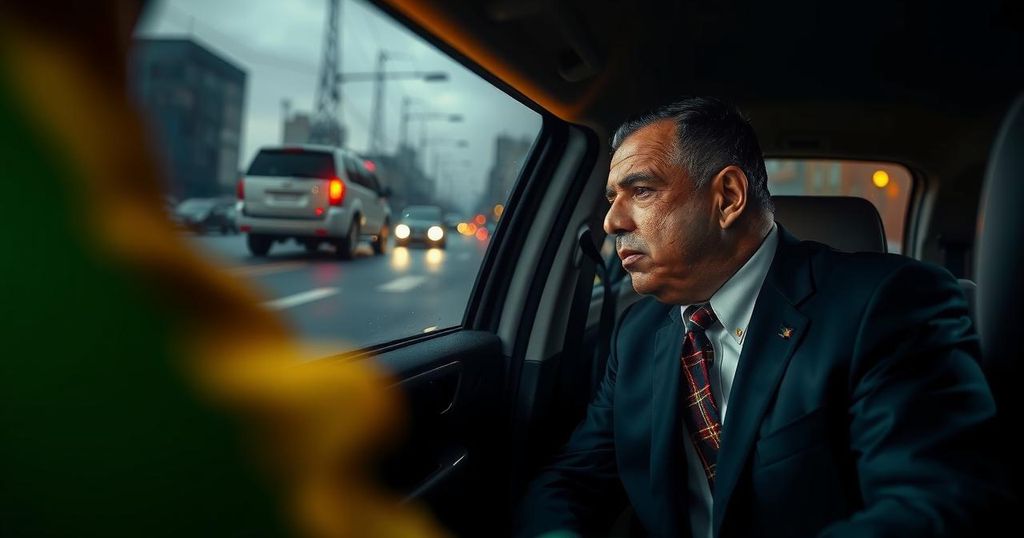Evo Morales, Bolivia’s former president, alleged that shots were fired at his vehicle during an attack, claiming a plot to assassinate him amidst political tensions with current President Luis Arce. This confrontation occurs against a backdrop of unrest within the ruling party as both leaders confront an approaching election and deal with various economic crises.
Evo Morales, the former President of Bolivia, has reported an alarming incident in which shots were fired at his vehicle amidst escalating political tensions within the ruling socialist party. Morales alleges that during the altercation on Sunday, two vehicles intercepted him on the road and opened fire, narrowly missing him by mere centimeters. In a recent radio interview, Morales expressed uncertainty regarding whether his attackers were military personnel or law enforcement officers, stating, “I don’t know if they were soldiers or police.” This incident is framed within a broader context of political infighting as Morales seeks to regain influence as the primary opponent of current President Luis Arce, following a tumultuous period of governance after Morales’ resignation in 2019. The former president, who served from 2006 until his resignation, also shared a video on social media depicting the aftermath of the attack, showing multiple bullet holes in the windshield of his vehicle. He highlighted the severity of the attack by implying that, “This was planned. The idea was to kill Evo.” The government has indicated that an investigation into the attack will take place but has also criticized Morales for allegedly inciting unrest with prolonged road blockades that have led to significant disruptions across Bolivia. In light of the ongoing strife, security forces have clashed with Morales’ supporters, resulting in numerous injuries and arrests. As both leaders navigate a precarious political landscape, the nation grapples with economic challenges exacerbated by turmoil within its ruling party. The increasing tensions between Morales and President Arce manifest a notable power struggle within the Movement Toward Socialism (MAS) party, with the upcoming 2025 elections serving as a critical backdrop. Morales, who has faced scrutiny regarding allegations of inappropriate relationships, has adamantly denied these claims, framing the investigations against him as politically motivated attempts to undermine his influence. With a nation already experiencing financial crises, including dwindling gas production and rising inflation, the stakes are high for both political leaders in the sphere of Bolivian politics.
Bolivia has recently experienced significant political upheaval, particularly following the controversial resignation of Evo Morales in 2019, after mass protests against his presidency. The subsequent leadership of President Luis Arce has not resolved the underlying tensions within the ruling Movement Toward Socialism (MAS) party, with Morales and Arce emerging as key figures in a power struggle. Political unrest has escalated as Morales’ supporters have engaged in protests, leading to confrontations with security forces. This instability, compounded by economic challenges such as inflation and dwindling gas resources, lays a precarious foundation for the lead-up to the upcoming election cycle in 2025.
In conclusion, the reported assassination attempt against Evo Morales underscores the serious political tensions in Bolivia as his conflict with President Luis Arce intensifies. The incident highlights both personal and ideological divisions within the ruling party and reflects the broader discontent among various factions in Bolivian society. As the nation prepares for the forthcoming elections, the stakes are evidently high, with both leaders facing pressure amid an ongoing economic crisis.
Original Source: www.aljazeera.com







